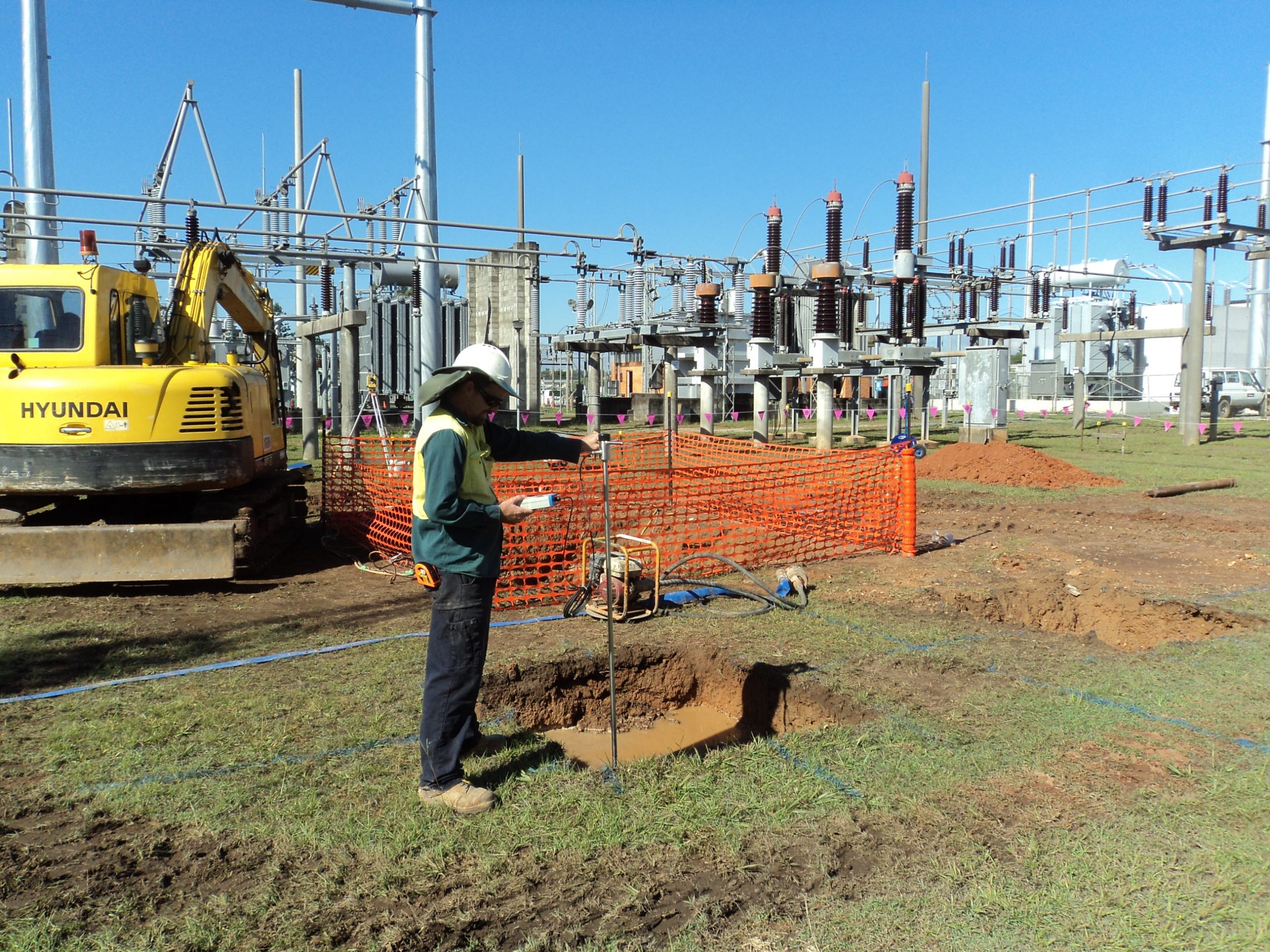

Soil Electrical Resistivity Testing (SERT), one of the methods included under electrical geophysical techniques, has significant importance in Australia’s wide-ranging and multi-faceted soil environments, with respect to the integrity, durability and performance of infrastructure projects. If you are building pipelines, electrical substations, solar farms or conducting a geotechnical investigation, knowing how your soil conducts electricity is critical to reducing the risk of corrosion and enhancing design precision.

Soil electrical resistivity measures how strongly the soil resists the flow of electrical current (in ohm-metres). It’s influenced by several factors, moisture content, salinity, temperature, density, and soil type.
Understanding this simple principle helps engineers make informed decisions when designing earthing systems, grounding networks, and corrosion protection plans.
Australia’s extreme climate and wide range of soil types make ground resistivity measurement critical for safe and cost-effective engineering.
These factors make site-specific resistivity testing a necessity, not an option, for reliable soil corrosion testing and earthing design.
Some recent studies have shown that low soil resistivity is a function of moisture content and compaction, or salinity of the soil (effectively discussing an exponential model between geotechnical characteristics and electrical resistivity). Several other novel mathematical techniques, including ANNs, have been demonstrated to achieve better prediction than traditional linear methods in the context of resistivity prediction.
These empirical models underscore the importance of using geotechnical data in combination with resistivity tests to gain a more realistic understanding of soil, reduce field testing costs, and support earth system and corrosion mitigation designs in Australia.
Choosing the right company to conduct soil electrical resistivity testing helps one get accurate, site-specific results that inform safe and efficient design decisions. Experienced testers understand how local soil conditions, moisture, and salinity affect the resistivity values, ensuring that the data is properly analyzed for applications in earthing design, pipeline protection, and infrastructure reliability.
A trusted provider such as Tempsand Pty Ltd. It provides specialist services in electrical resistivity and soil thermal conductivity testing across Australia. The company’s expertise enables engineers, builders, and renewable energy developers to achieve reliable, compliant, and data-driven assessments of soil, thus minimizing long-term risks to the projects.
Soil electrical resistivity testing is an essential part of the toolkit for engineers, utility managers and renewable energy developers in Australia’s wide range of soil types and environments. It supports the protection of infrastructure, better design, and reduced long-term risk — while ensuring projects meet Australian safety standards.
Avoid making decisions based on guesses, opt instead for soil resistivity testing as part of the geotechnical site investigation.
For accurate soil electrical resistivity testing and reliable geotechnical insights, get in touch with Tempsand Pty Ltd today, or call 0429-674-334 for more information.